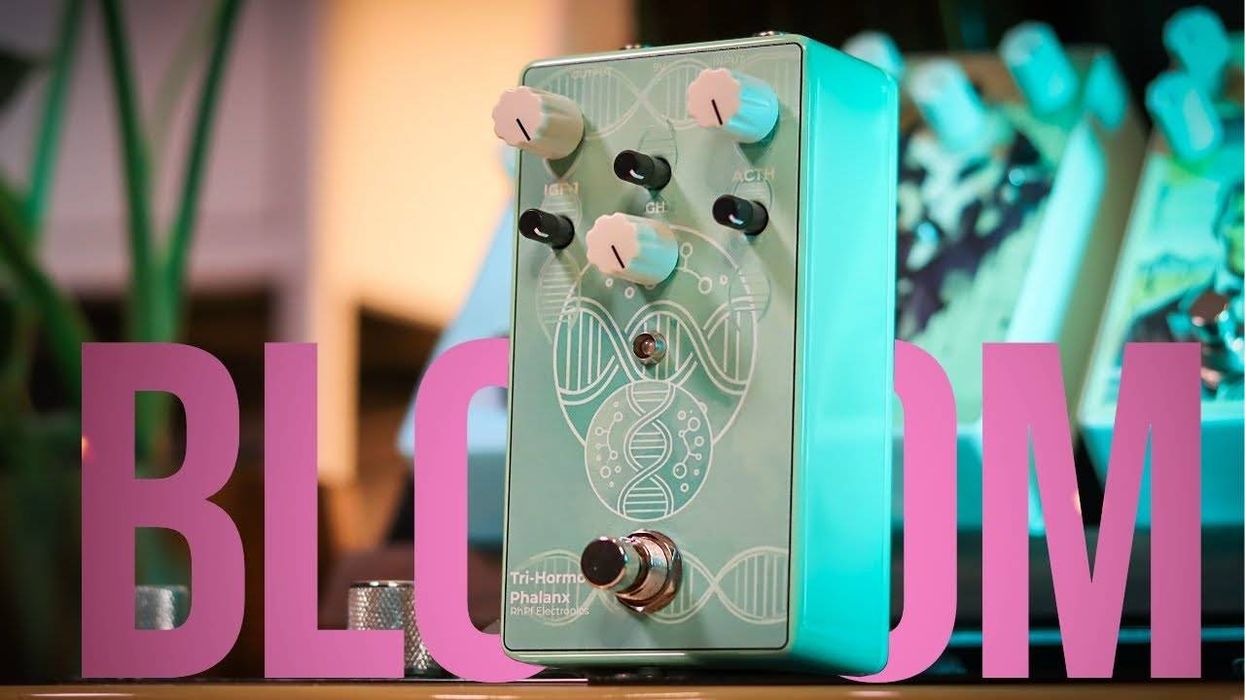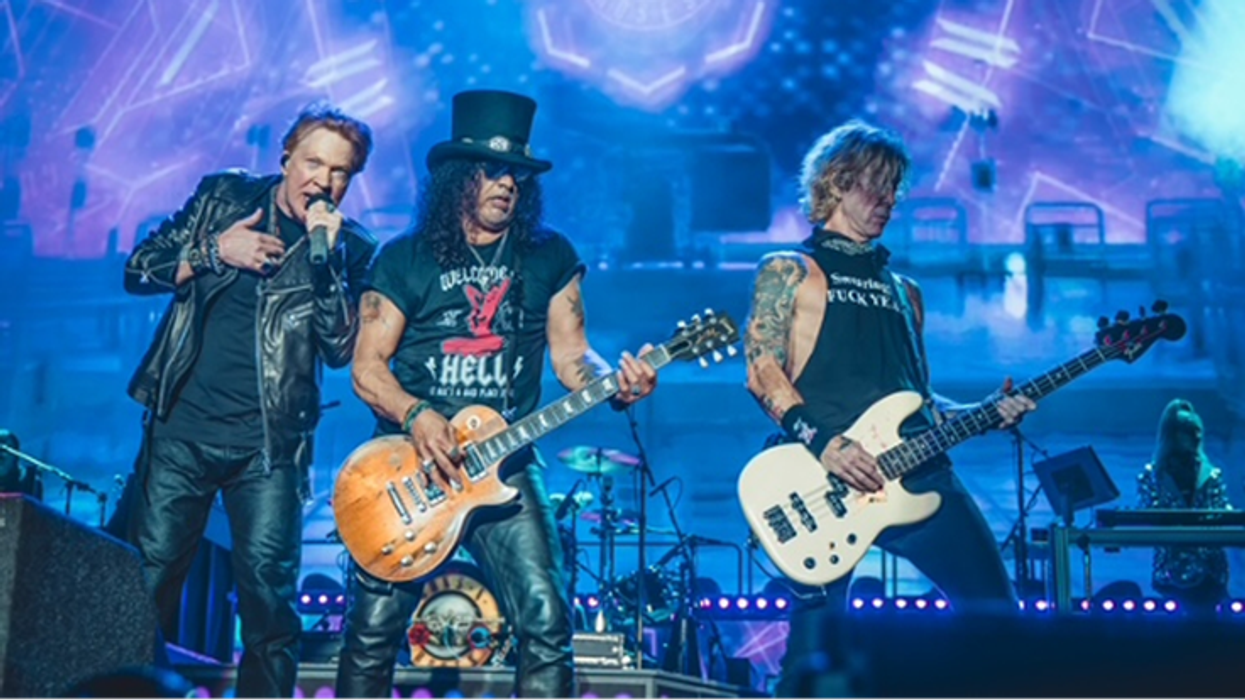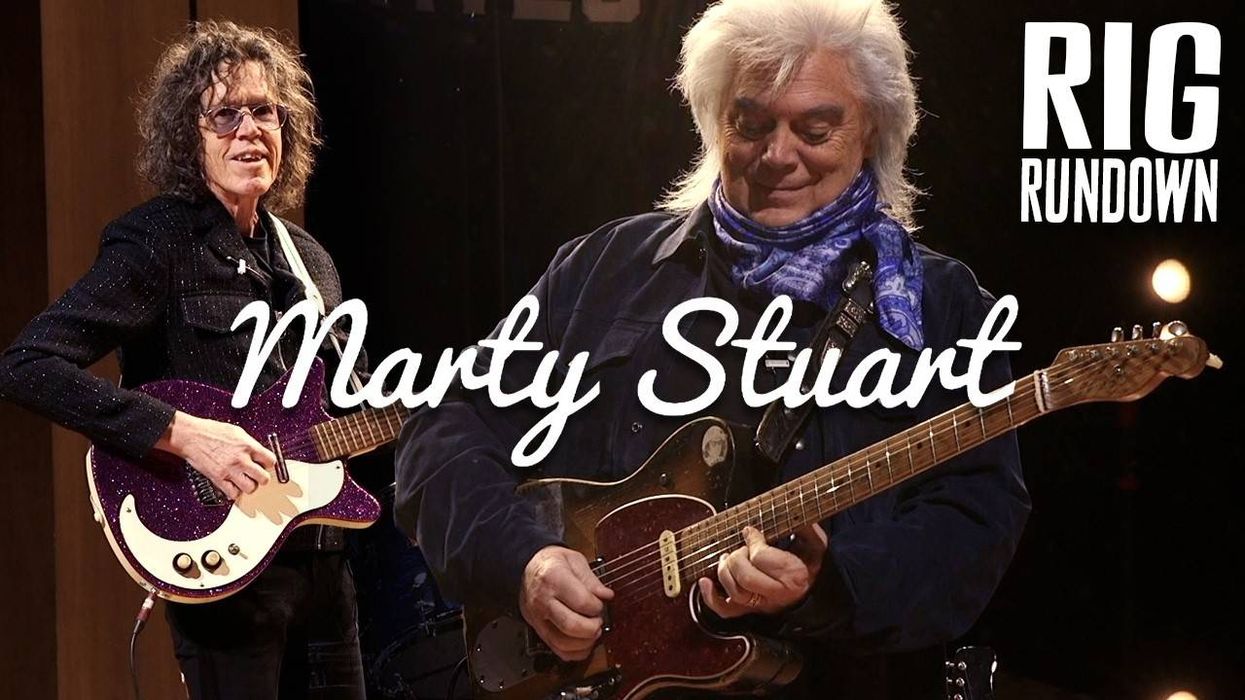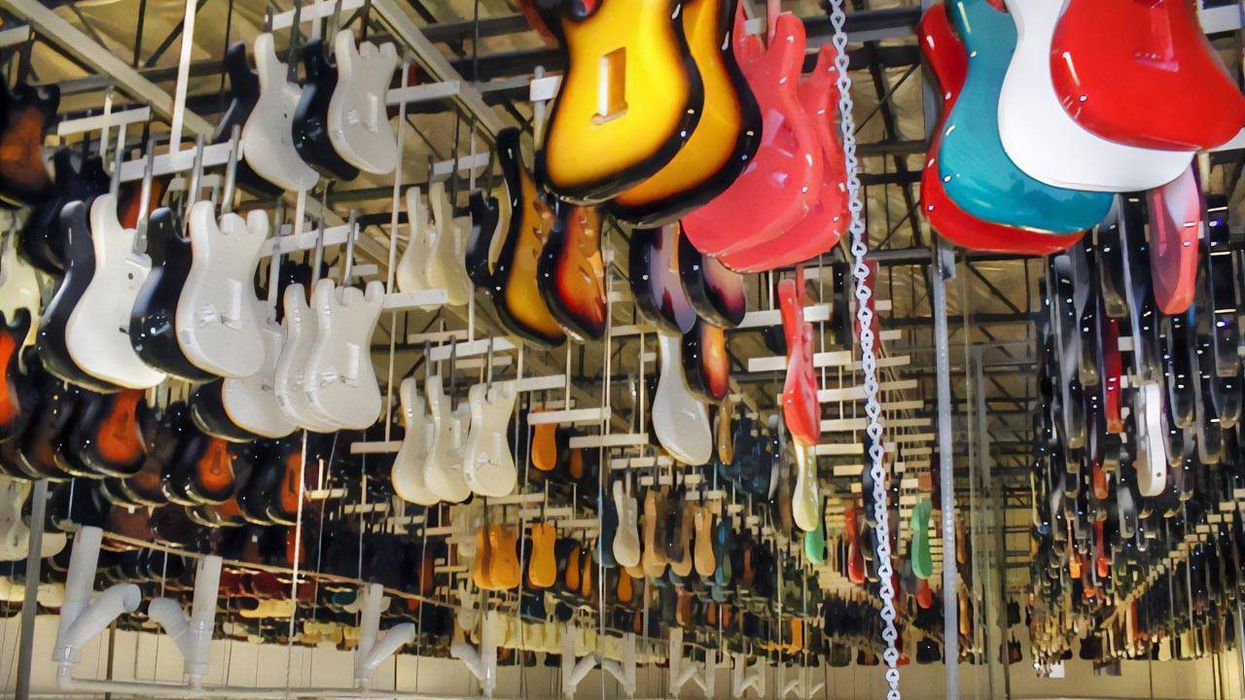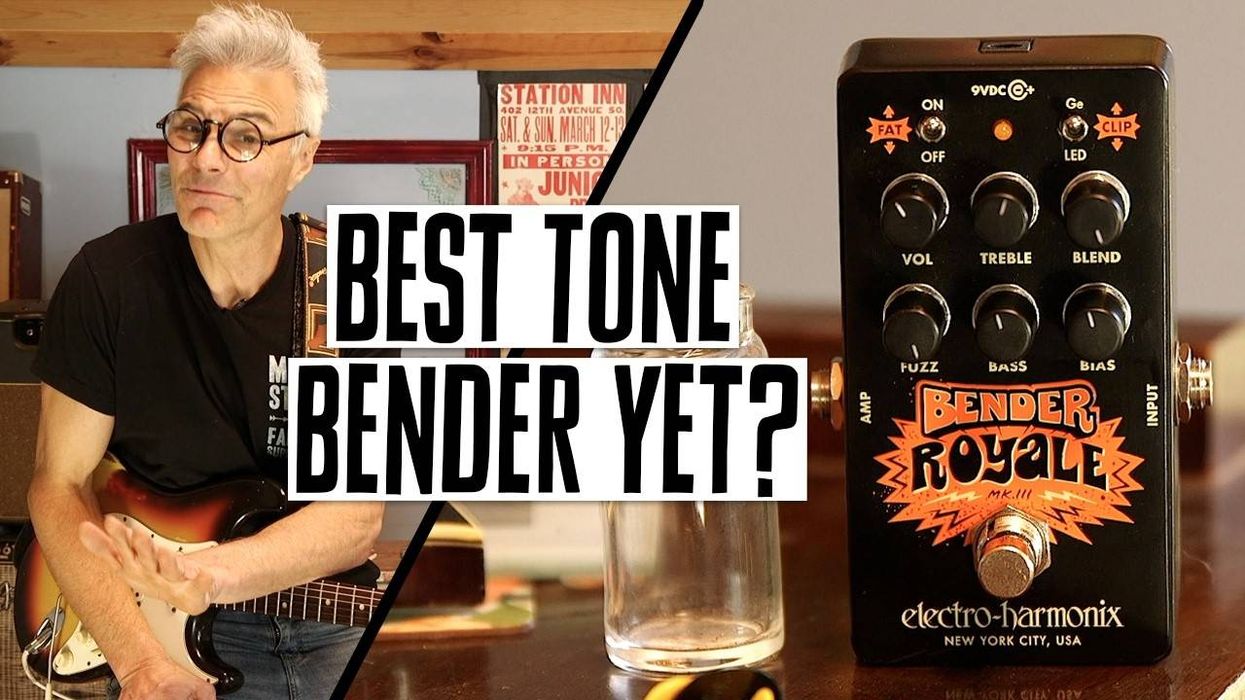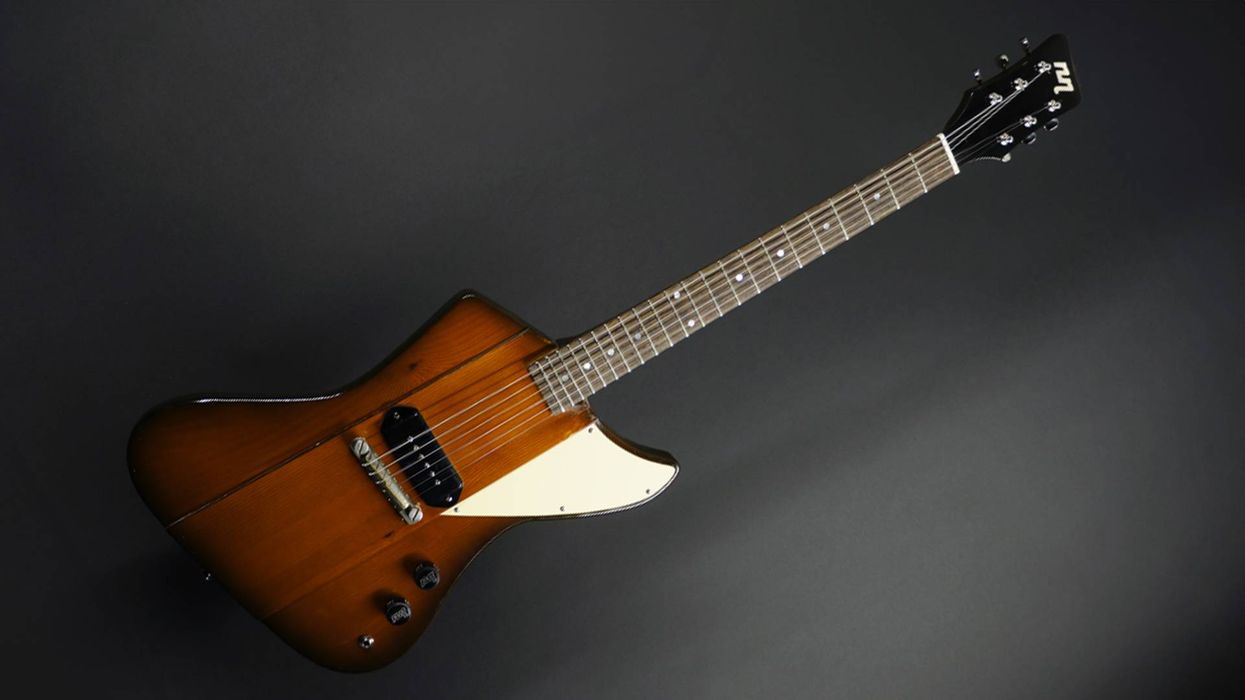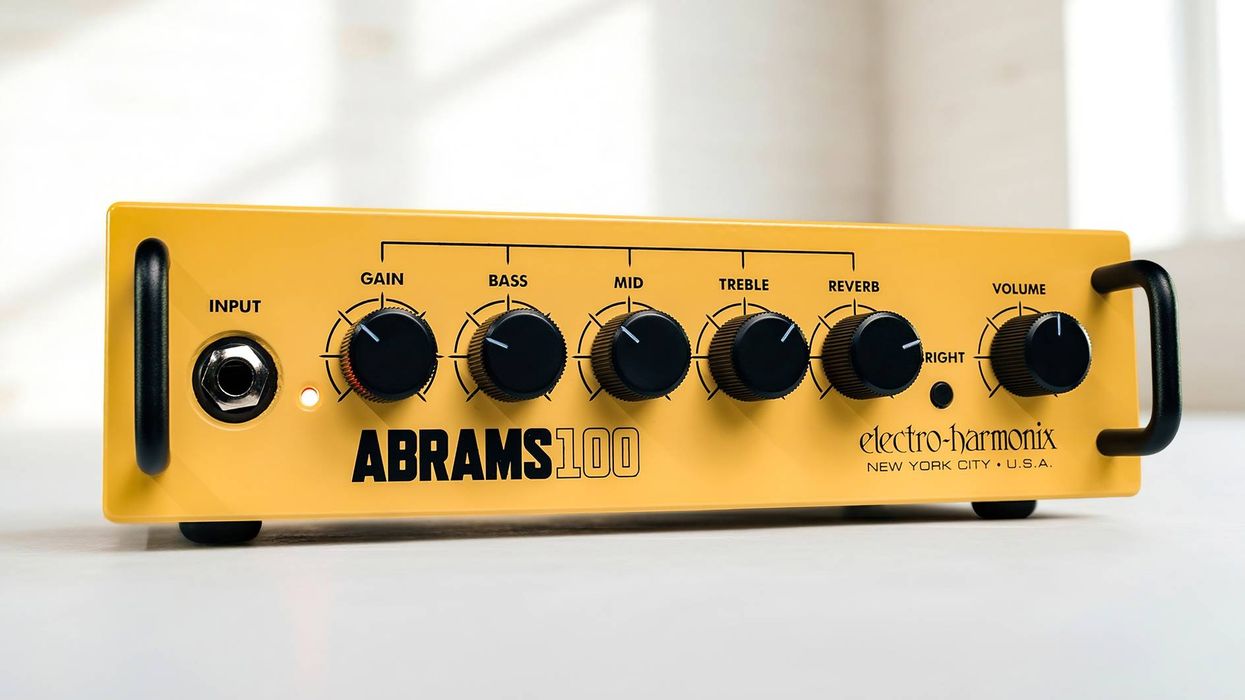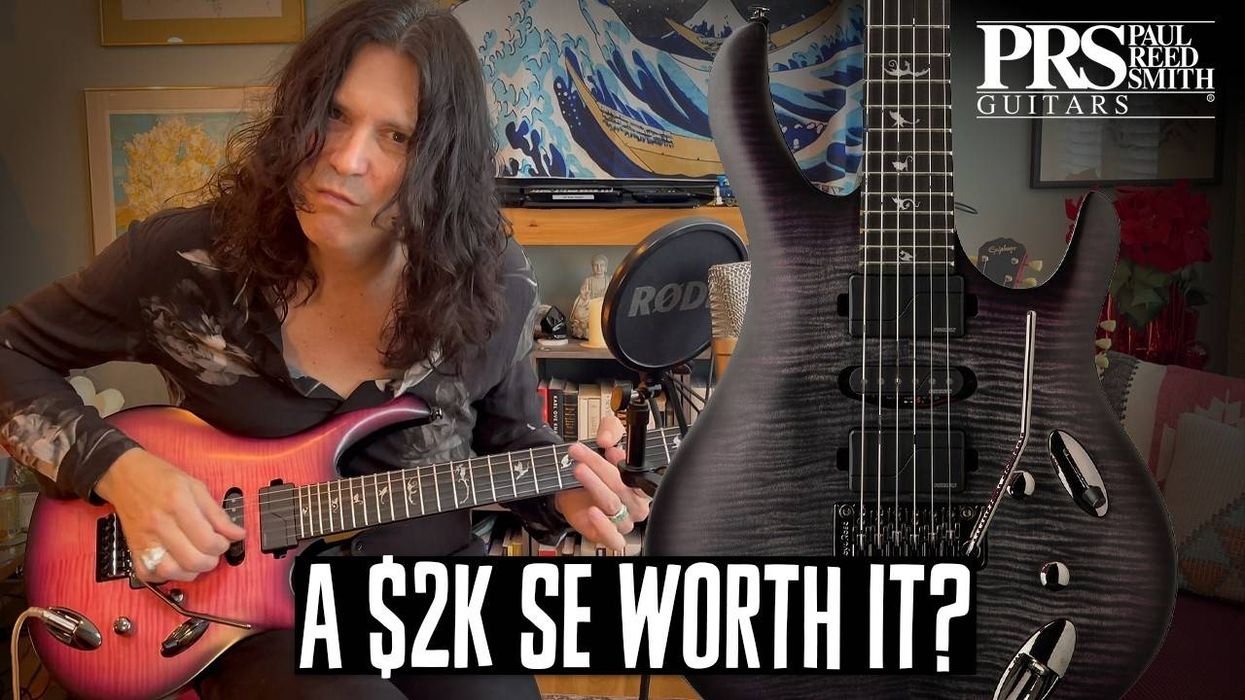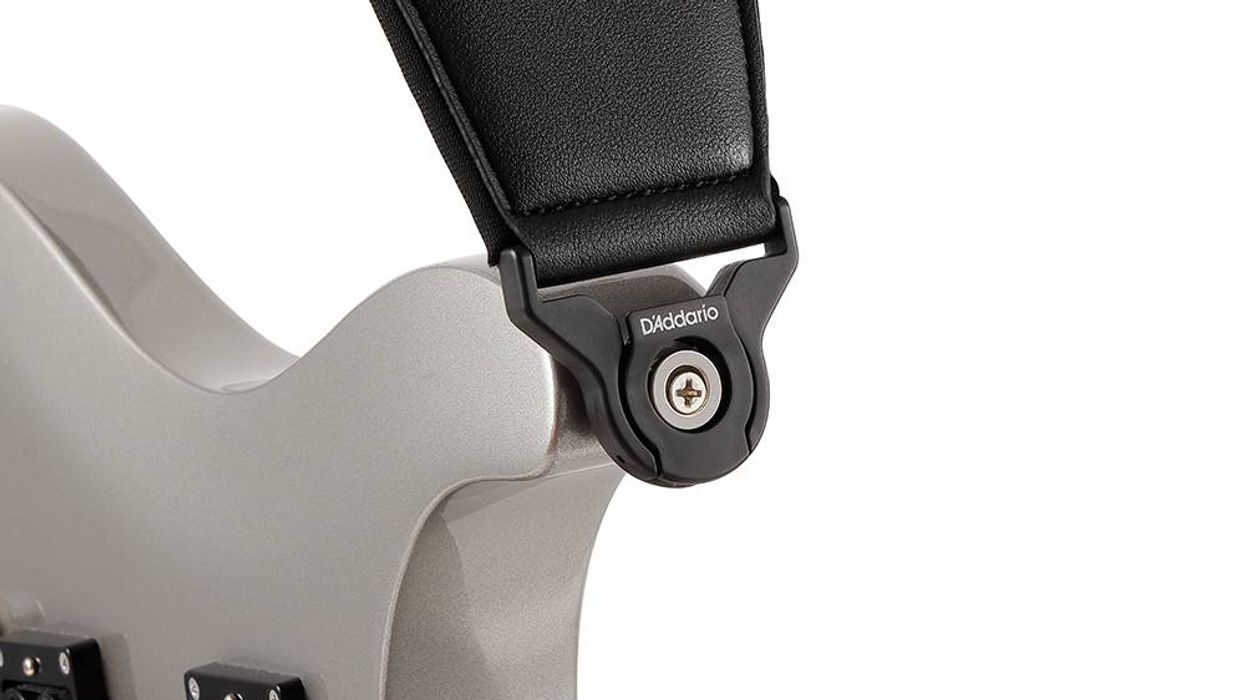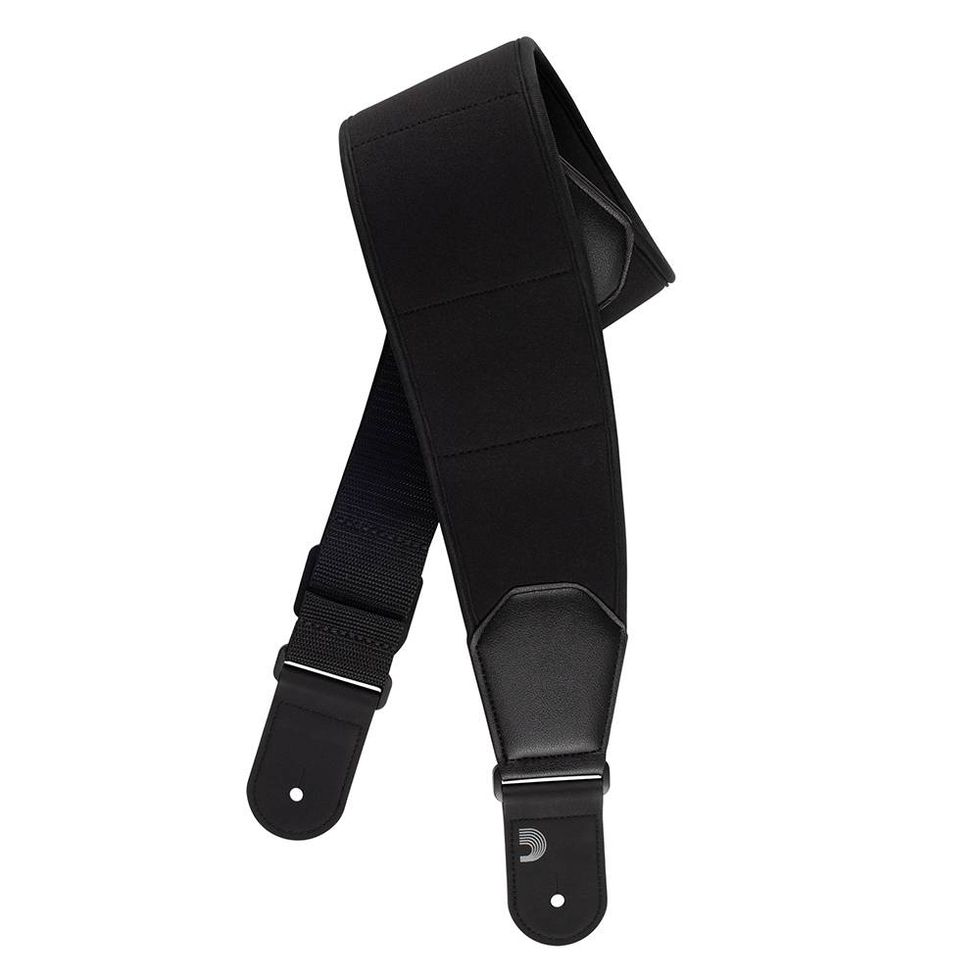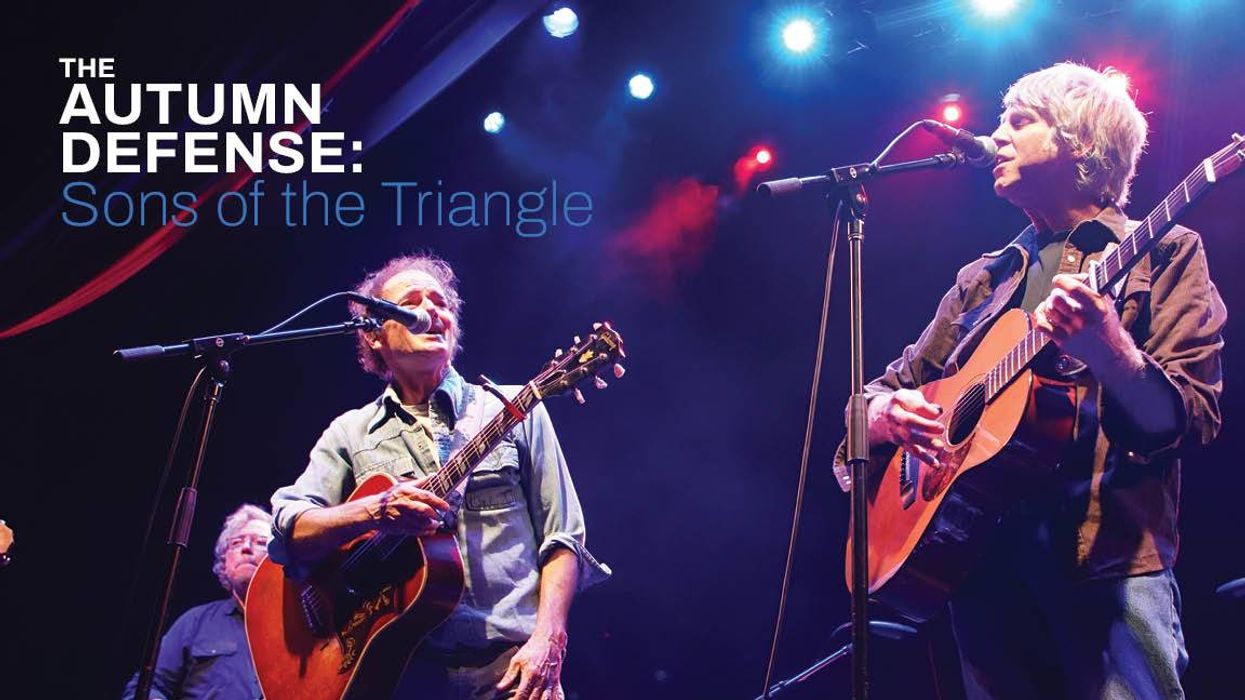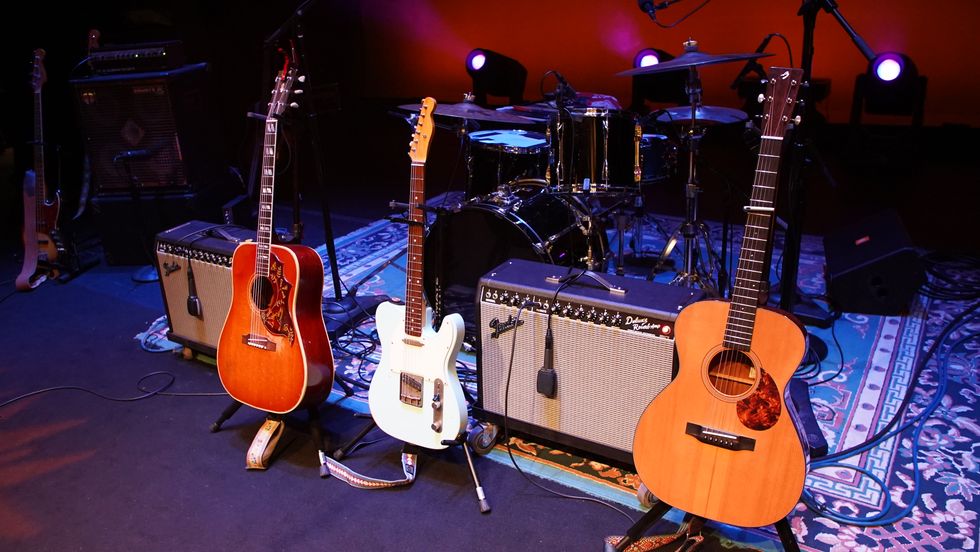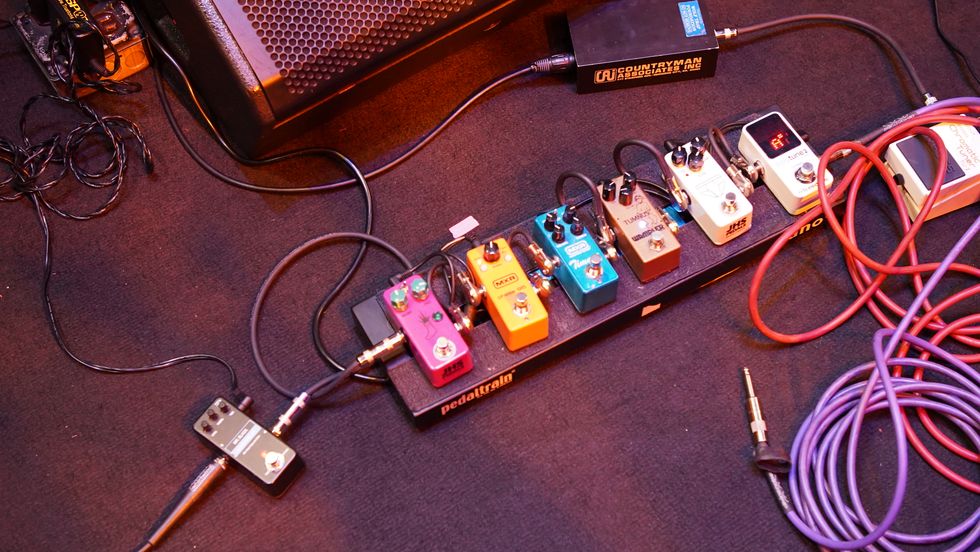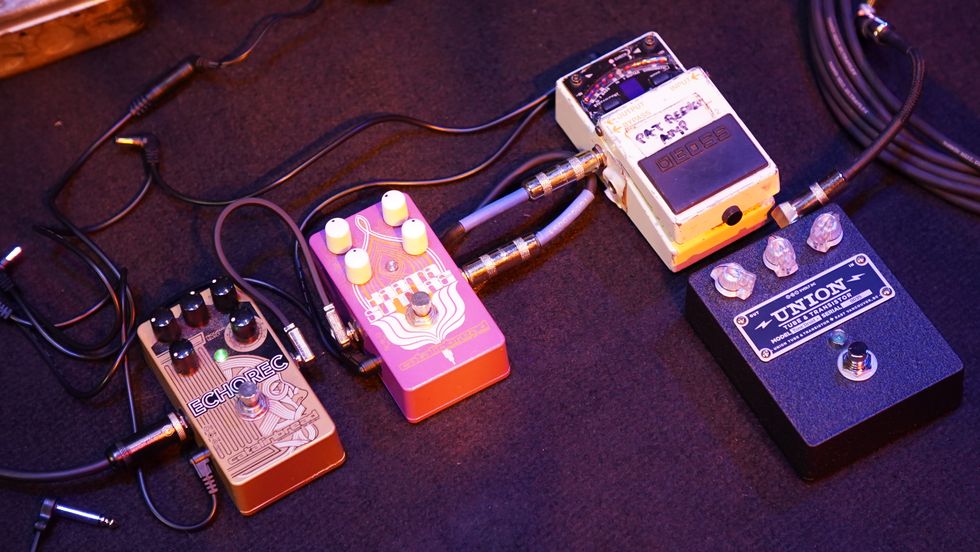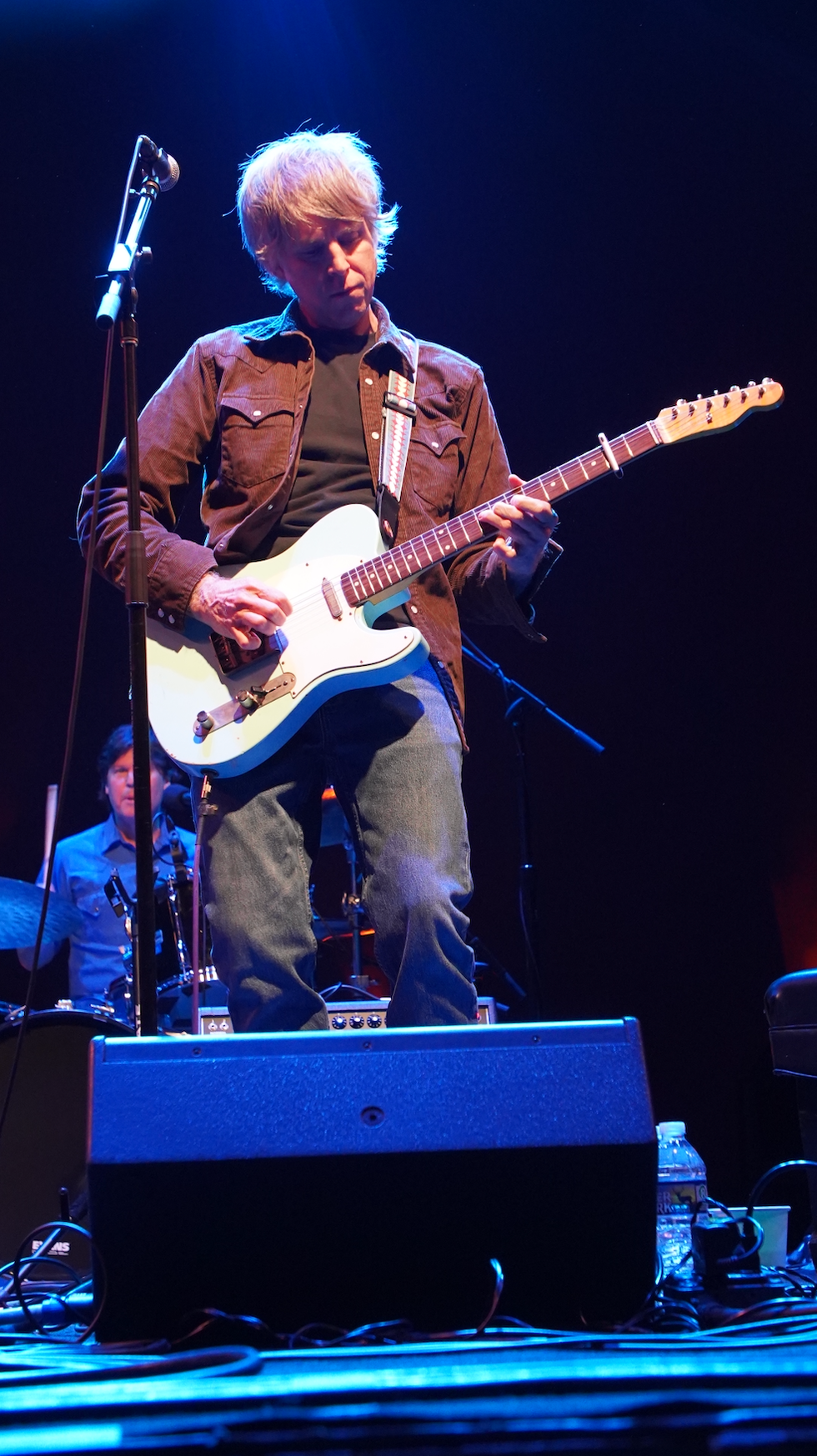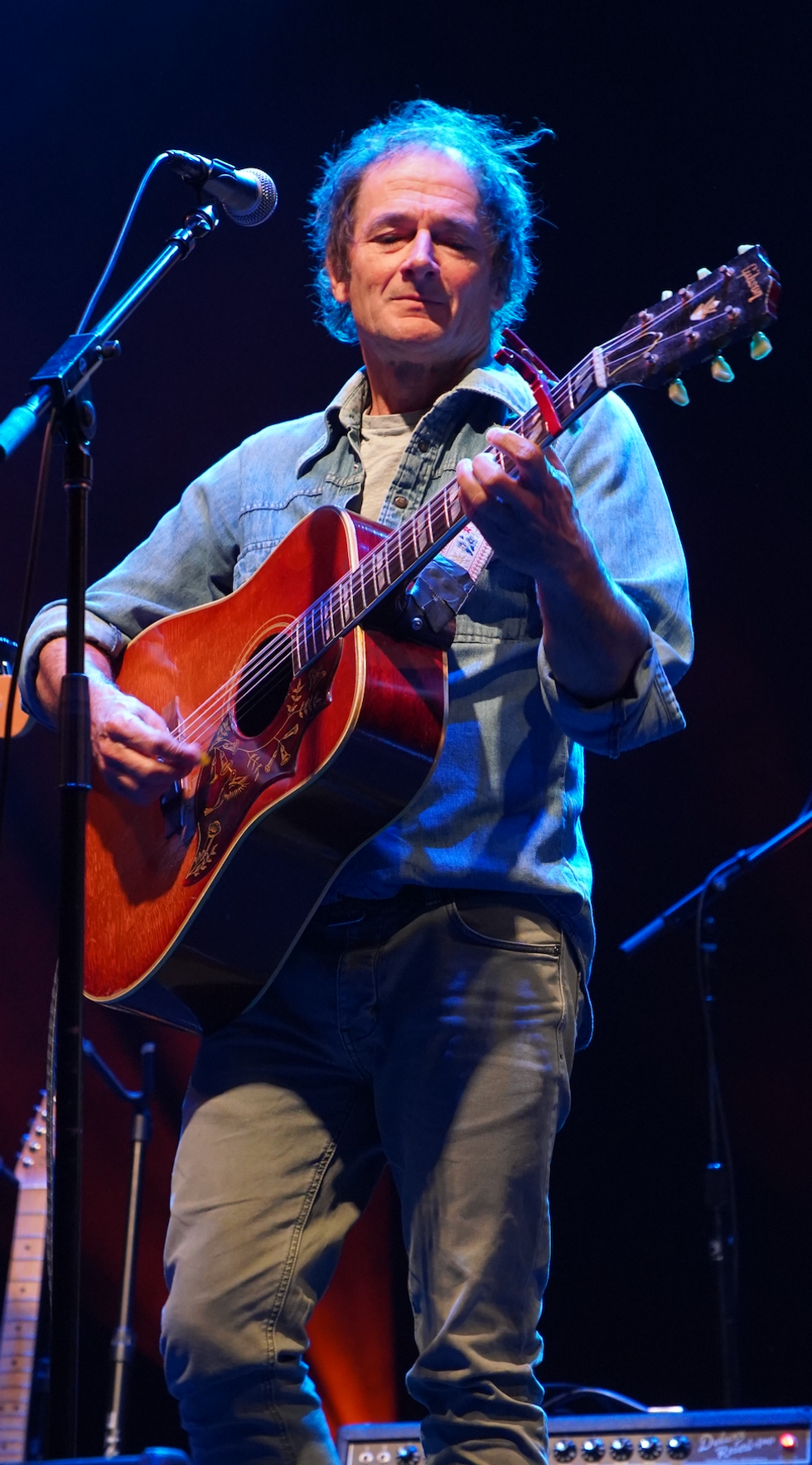One of my favorite things about being in a band is the community—sharing music, books, friends, and food with your bandmates—as you march through an endless stream of van or plane rides, studios, sound checks, and hotels. The waiting can be interminable, and people find many different ways to deal with it. Sometimes, with the wrong company, the time can feel like a black hole, and it takes a good deal of conscious effort to stay sane and healthy. Luckily, I have spent most of my career surrounded by people that I could relate to—and we’ve built our friendships along the way—strengthening the music in concert with our personal bonds.
When I look back over the different bands I’ve been a part of, I often think to a record or two that defined our time together as a band. I remember the early days of my first band, where we spent a lot of time with Daniel Lanois’ first record, Acadie. It was a clarion call for us to stretch out musically, and it married a really deep soul with amazing production. Each person in the band could find something different in his music. For me, it was Daniel’s ability to play simple and folky music that seemed to reference a shadowy, second sound beyond the notes he was playing. I was hearing this a lot in those days with all of the post-punk and goth-style industrial music going on, but Daniel voiced it with an added poignancy and class that made it seem deeper and more dangerous. It really helped us open up doors as a band while we experimented with sounds in the never-ending quest to actually say something. Later, as we started improvising more on structure, we spent a good deal of time with Eddie Harris' music, along with Fire/Fury Records Story and the Swingtime set (both compilations of old soul/blues), that our label Capricorn had released.
My first band broke up in ’96, and I put together a band with JJ Johnson and George Reiff (as well as Bukka Allen, who played in the first band). Our first couple of tours were loose, while we tried to get our sound together. We were quickly in the studio making my third record, And All the Colors, and I remember Radiohead’s OK Computer and the Root’s debut as our bedrock records around that point. OK Computer really changed the sound of rock music during the time we were trying to get our voice. The Roots were doing the same thing with hip-hop. Both were in constant rotation in the studio and in the van. There were many conversations about the minutia of the songs, the ideas, and more. As we pushed through the concepts of those songs, we started falling in with some of the sounds of the ’90s British psych music—especially Spritualized and Stereolab. Our then guitar tech, Chris Dye, would drape the stage in white sheets, and set up his mishmash of Super 8 cameras, with avant-garde film loops whirring while we immersed the songs in waves of echo and feedback. Our new drummer, Chris Searles, would be a blur of motion and polyrhythm as we pulled the oft-unwitting crowd along with us. It was sometimes pretentious, but always fun.
Chris Dye came to me with a mission. He said, “We need to cut the fat.” Things were so bombastic and over the top every night, and he was proselytizing like Ian MacKaye on a coffee binge. I bit. We decided to go out with me playing acoustic guitar, sleeping on couches, and really trying to do something new. This was a germination time for my next record, Luminaria, and was a brand-new vista. Chris was a big Brian Eno fan, and really liked the concept of music as “wallpaper.” This was a pretty foreign concept to me at the time, as music was all about passion, blood, and intention. I remember many long drives through the western deserts with Eno’s Apollo and Here Come the Warm Jets playing through the endless hours of deserts and highway. As we toured, Chris started playing as well, first the Omnichord, and then “anti-guitar” guitar. I was learning the acoustic guitar as an instrument, as well as learning about silence and quiet, both in my voice and in my songs. As if on cue, Neutral Milk Hotel released In the Aeroplane Over the Sea. Eno was like a palate cleanser (egads!) and everything seemed different afterwards. It felt like a retrenching of sorts, revisiting a lot of places I had been, but with new eyes.
We often found ourselves in San Francisco, and I had become friends with many of the bands in the Noise Pop scene there. To me, a lot of the music had ties to stuff that I was listening to at the time, but wasn’t being heard elsewhere in the States. Beulah was the first band I heard, as they were part of the Elephant 6 circus, but it was Oranger that I really fell in love with. They were an offshoot of the phenomenal power-pop band Overwhelming Colorfast that I was already quite a fan of, but they were more psychy, and it fit perfectly with where my head was at the time. Matt, the bass player, and I started writing songs together, eventually writing and recording my last record, El Sonido Nuevo together. Matt had become one of my best friends, and we basically were handing off records and books, as we wrote the songs. He has a deep knowledge of pysch and underground rock, and we spun through countless records, veering from ’60s Turkish psych to Emitt Rhodes, and from Arthur Lyman to Arthur Lee and Love. As we recorded the record, a chord shift from one place would sneak in, a lyrical slant from another, until we had a record sitting in our hands.
When I listen to my records over the years, the songs bring back all kinds of memories—however, the music I was listening to at the time is now seen as a conduit from one space to another. I really like the journeys and the shifts, and feel that in being open to them, I have become a better musician.
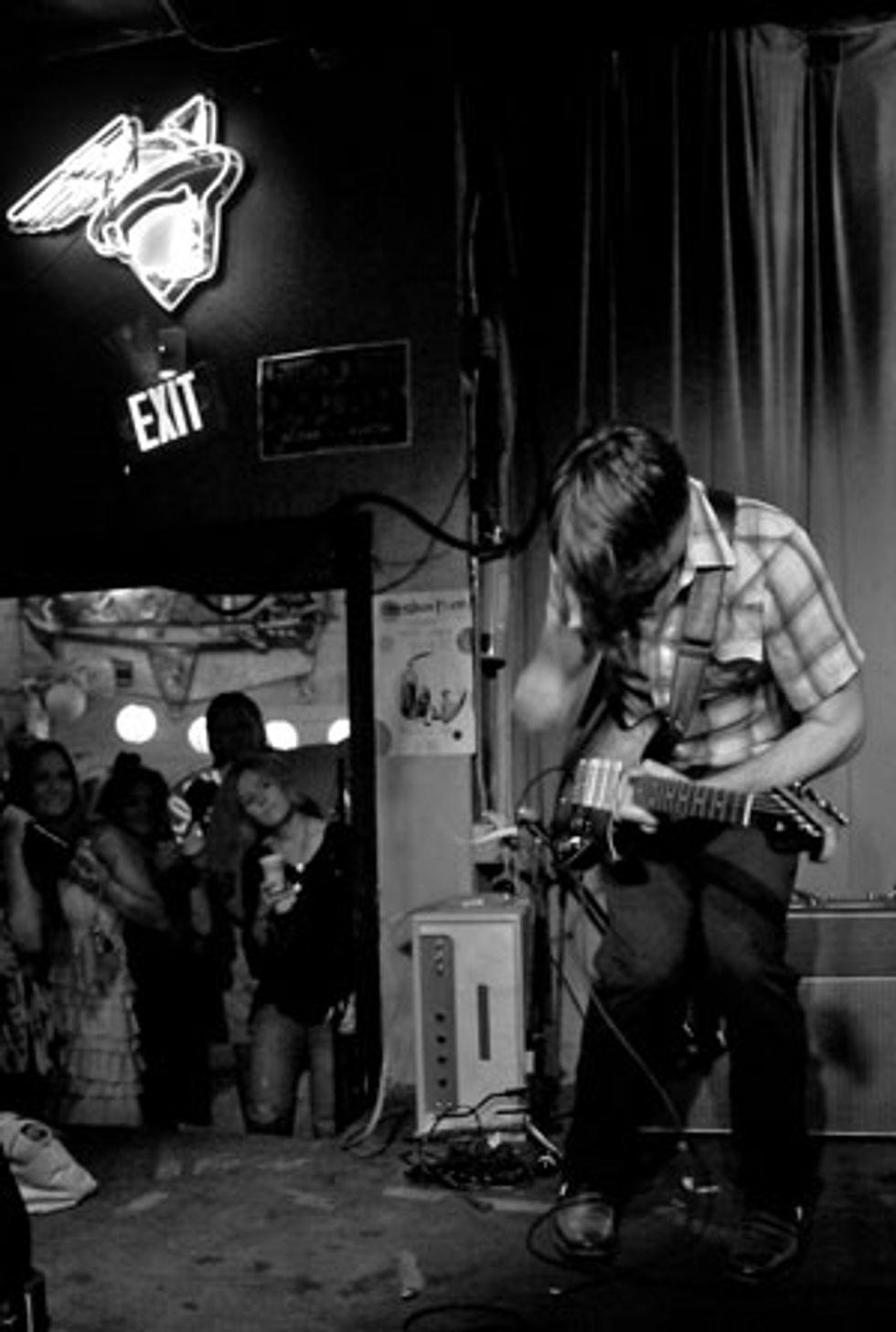 Ian Moore is an Austin, Texas-based guitarist who has had his hands in a bit of everything related to guitar, from an acclaimed solo career to building and modifying his own gear to being a sideman for pop star Jason Mraz. ianmoore.com
Ian Moore is an Austin, Texas-based guitarist who has had his hands in a bit of everything related to guitar, from an acclaimed solo career to building and modifying his own gear to being a sideman for pop star Jason Mraz. ianmoore.com
